Vegni adamant Chris Froome's 2018 Giro d'Italia result will stand regardless of salbutamol verdict
Giro director sought assurances from Lappartient in March
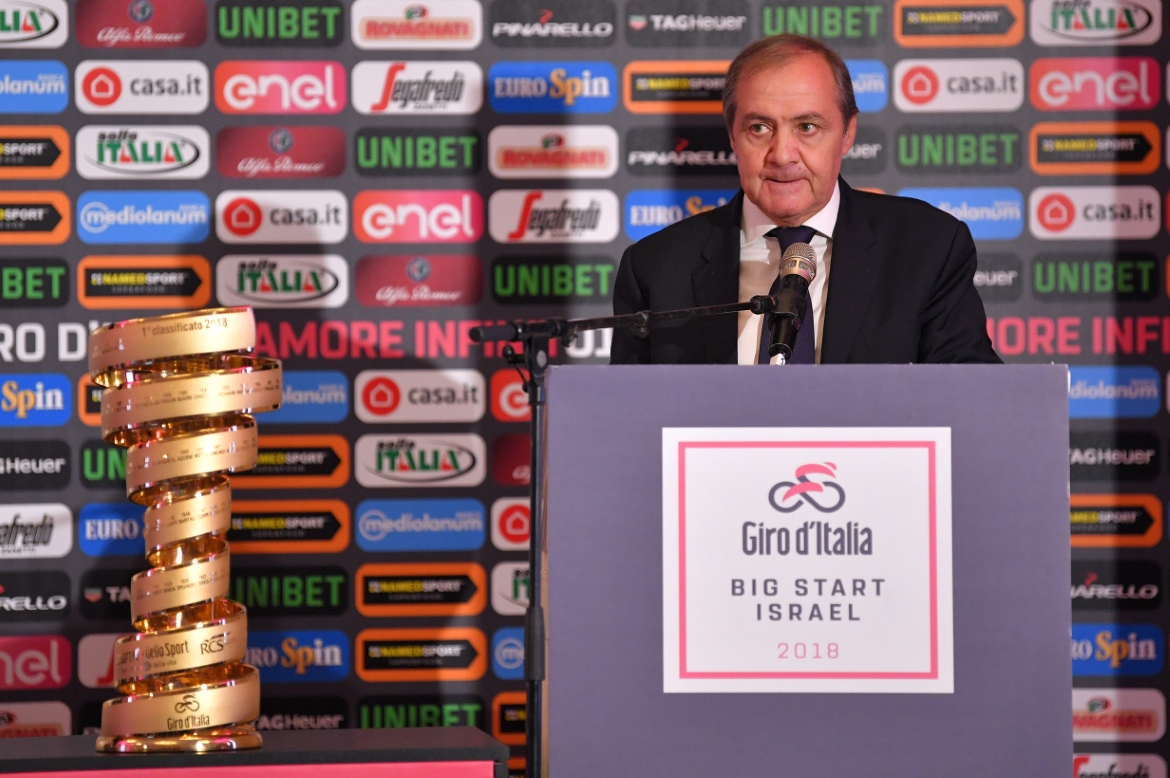
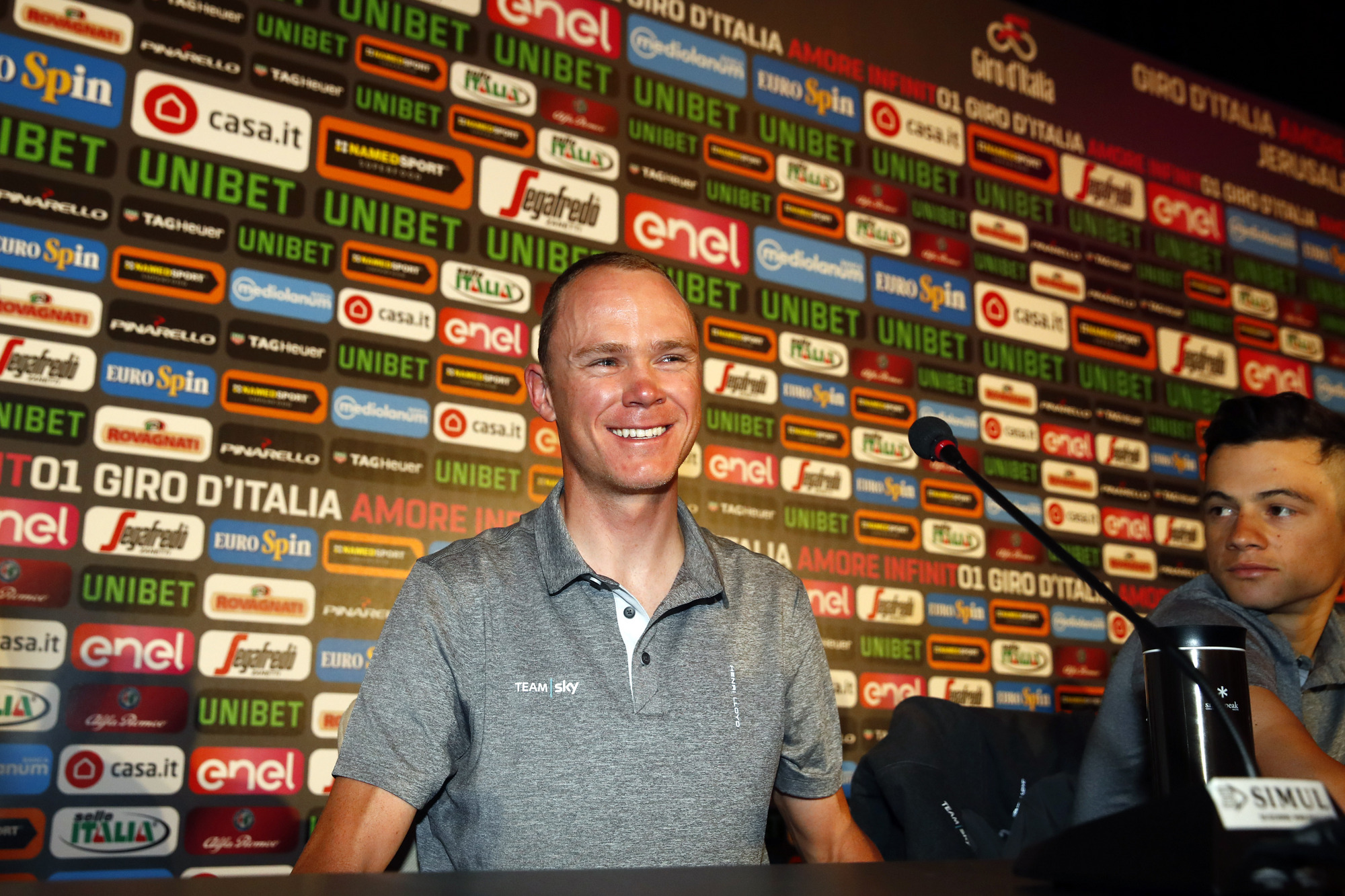
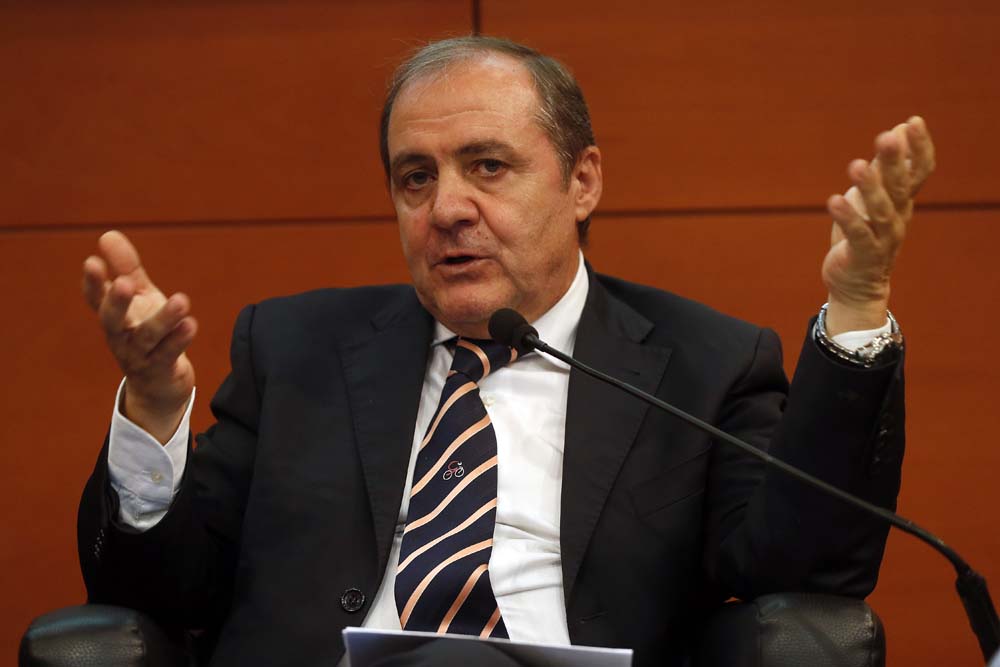
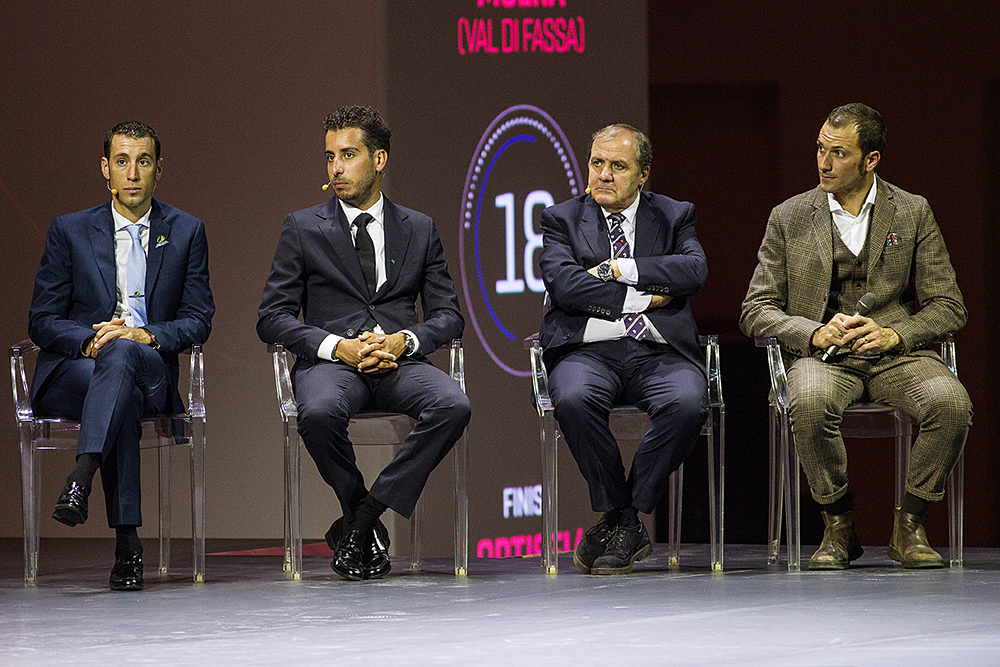
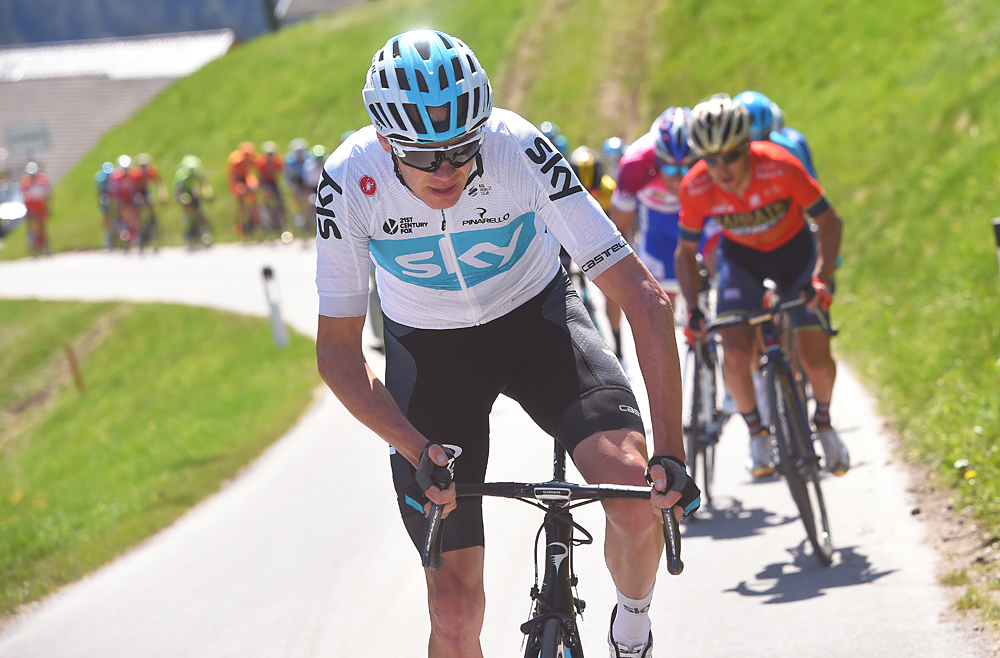
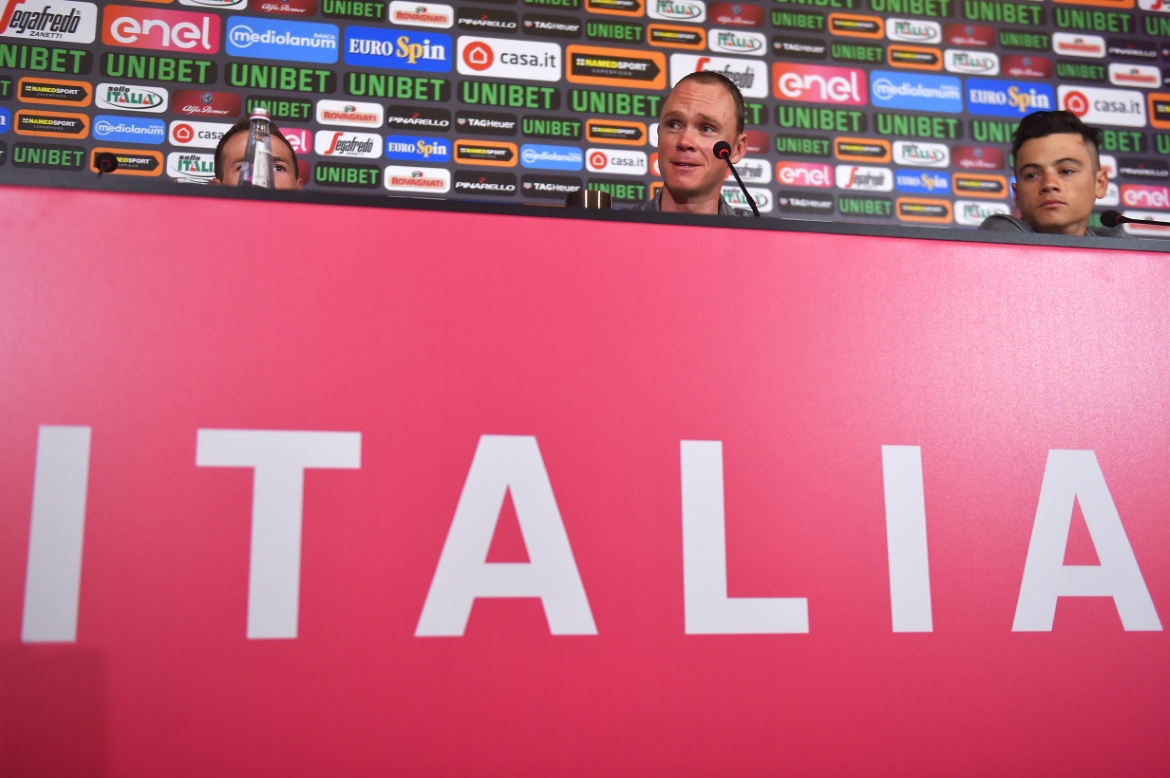
Giro d’Italia director Mauro Vegni has said he has received assurances from UCI president David Lappartient that Chris Froome’s result on this year’s race will stand, even if he is later sanctioned for his positive test for salbutamol at the 2017 Vuelta a España.
Vegni still working on bringing Froome and Dumoulin to the Giro d'Italia
Vegni: I can't stop Chris Froome racing the Giro d'Italia
Chris Froome's road to the Giro d'Italia - Video
Brailsford: I'm constantly thinking, 'Am I the right person to support the team?'
Chris Froome not relying on time trials for Giro d'Italia title
Tom Dumoulin: Chris Froome uncertainty benefits nobody ahead of Giro d'Italia
Speaking in Jerusalem on Thursday, Vegni said that RCS Sport would not countenance a repeat of the situation that saw Alberto Contador stripped of his 2011 Giro victory after he was belatedly sanctioned for his 2010 positive test for clenbuterol following a similarly protracted case.
"The position of the Giro has been clear for several months. We've always said that we would not be willing to accept a situation like Contador in 2011. We've received assurances that this won't happen, so we're confident that the result at the end of the Giro in Rome is the result that will stand for this Giro d’Italia," said Vegni, who explained that he had met with Lappartient on the eve of Milan-San Remo in March.
"Given the length of time the case is taking, I proposed to President Lappartient that any suspension would start from the moment that a sanction was handed down. If it happened after the Giro, the suspension would start after the Giro. If it happened after the Tour, the suspension would start after the Tour.
"The uncertainty is not correct for the public, for us organisers, or for the athlete himself. So if Froome is sanctioned, he would lose the Vuelta title, but any ban would only start from the moment the sanction was confirmed. Lappartient seemed open to this, and he in some way reassured me that there wouldn't be great problems with the Giro.”
Any formal assurance does not seem to be in the UCI president's gift, however, given that Froome's case is to be judged by the governing body's ostensibly independent Anti-Doping Tribunal.
Later on Thursday, the UCI issued a statement reflecting as much: "The UCI wishes to clarify that the UCI President is not in a position to decide when a potential suspension for any anti-doping rule violation should start and whether results obtained before the starting point of a suspension should be annulled or maintained."
Get The Leadout Newsletter
The latest race content, interviews, features, reviews and expert buying guides, direct to your inbox!
Froome returned an adverse analytical finding for salbutamol following stage 18 of last year's Vuelta, the news of which was leaked to the press in December. The Briton's urine sample contained twice the permitted level of 1,000ng/ml of salbutamol. He has denied any wrongdoing and insisted that he did not exceed the permitted dosage from his salbutamol inhaler. Froome is free to compete until the case is resolved, and has chosen not to withhold himself from racing
Appearance fee
Vegni confirmed on Thursday that he was not aware of Froome's adverse analytical finding for salbutamol when the four-time Tour winner confirmed his Giro participation last November. The Giro director also downplayed reports that Froome had received an appearance fee of €1.4 million to line out in the corsa rosa, explaining that any negotiations were held with Team Sky rather than with the rider himself.
"I have never made a deal with an individual rider; my talks are always with teams," said Vegni, who added that all teams received a set fee to cover costs that was then augmented according to the strength of their rosters. "It’s clear that the quality of the participating riders is taken into consideration when evaluating a team’s reimbursement."
Vegni also defended the decision to award the Grande Partenza of the Giro to Israel despite calls for a boycott from groups including the European Coordination of Committees and Associations for Palestine, and criticism from Amnesty International.
"We came to Israel to put on a great sports event, and that's our position. We don't want to get into political discussions," Vegni said. "Anybody who wants to disagree is free to do so."
Click here to subscribe to the Cyclingnews podcast.

Barry Ryan was Head of Features at Cyclingnews. He has covered professional cycling since 2010, reporting from the Tour de France, Giro d’Italia and events from Argentina to Japan. His writing has appeared in The Independent, Procycling and Cycling Plus. He is the author of The Ascent: Sean Kelly, Stephen Roche and the Rise of Irish Cycling’s Golden Generation, published by Gill Books.